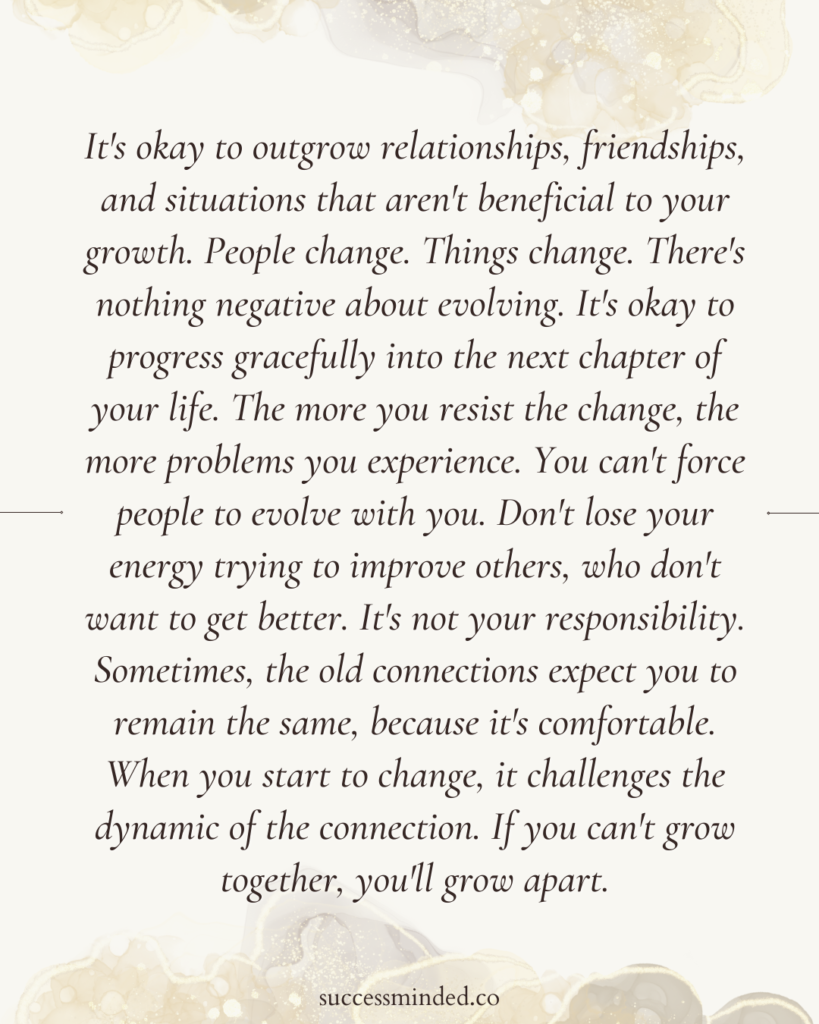
At some point in life, you’ll likely experience the bittersweet reality of outgrowing certain relationships. As we grow and change, it’s natural for our relational compatibilities to shift. What nourished us at one phase of life may feel draining or stagnant years later.
Outgrowing a friend, partner, or family member can stir up complex emotions. You cherish your history together, yet feel you’ve drifted apart. While letting go of unfulfilling relationships requires courage, it also makes space for connections elevating your growth. Adjusting to outgrowing people with grace allows both parties to find greater alignment.
Why We Naturally Outgrow Some Relationships
The interests sparking connection during your youth often change by adulthood. You loved similar music, clothes, and movies – elements forming your young identity. But as you mature and develop self-awareness, these surface similarities may no longer be enough glue.
Life transitions can also impact compatibility. Going away to college, moving abroad, entering your career field – these milestones shape preferences and priorities. Someone who helped ground you during school may not understand your new industry aspirations or city-living perspective.
As your worldview expands through education, cultural experiences, and overcoming challenges, you release limiting beliefs and behaviors. Friends still embracing previously shared toxic patterns like gossiping or competition can make you feel you’ve outgrown the relationship.
Working intently on personal growth yourself while they remain stagnant in old ways can breed incompatibility. Your standards for healthy relationships rise with emotional intelligence. You now find drama, passive-aggression, or superficiality draining.
Outgrowing people may simply mean you seek different traits in relationships than when you were younger or less mature. Needs for fun and excitement may shift to desiring vulnerability, depth, and self-awareness. Your values realign to focus on nurturing growth rather than chasing stimulation.
Subtle Signs You May Have Outgrown Someone
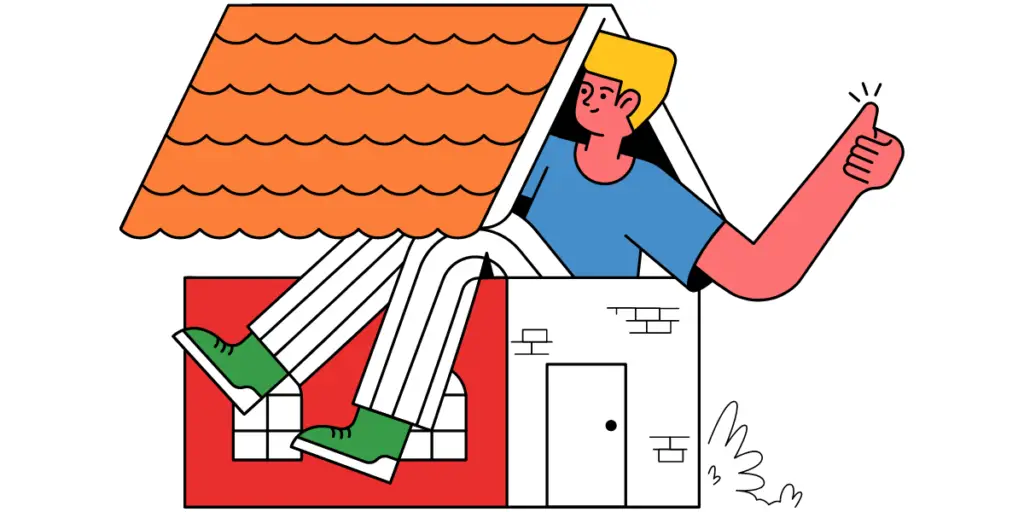
Reflecting on changes requiring you to minimize or hide yourself can reveal if you’ve outgrown a relationship:
- You don’t feel truly seen, understood, or emotionally supported anymore. They misinterpret changes in you as judgment about them rather than neutral evolution.
- You feel unable to openly share accomplishments, intimate feelings, vulnerabilities. This breeds a growing sense of distance.
- Interactions feel obligatory, and conversations superficial. Small talk avoids meaningful connection. Everything centers around mundane logistics.
- You dread seeing them rather than feeling excited. Your gut says this relationship now takes more energy than it provides.
- You constantly feel like you’re walking on eggshells to avoid offending them with aspects of yourself or your life.
- You revert back to an old version of yourself when together rather than feeling free to be your authentic self.
- Your values, worldviews, and priorities now differ. You can’t relate to each other’s goals or interests anymore.
- The relationship feels imbalanced, one-sided, toxic, or emotionally draining. You give far more than you receive.
- Without shared passions, you run out of things to talk about. Interactions feel boring or monotonous.
Remember, change can be mutual. They may feel you’re the one who has grown distant or difficult. Evaluating changes without judgment allows adjusting or letting go with care and empathy.
Navigating Relationships You’ve Outgrown
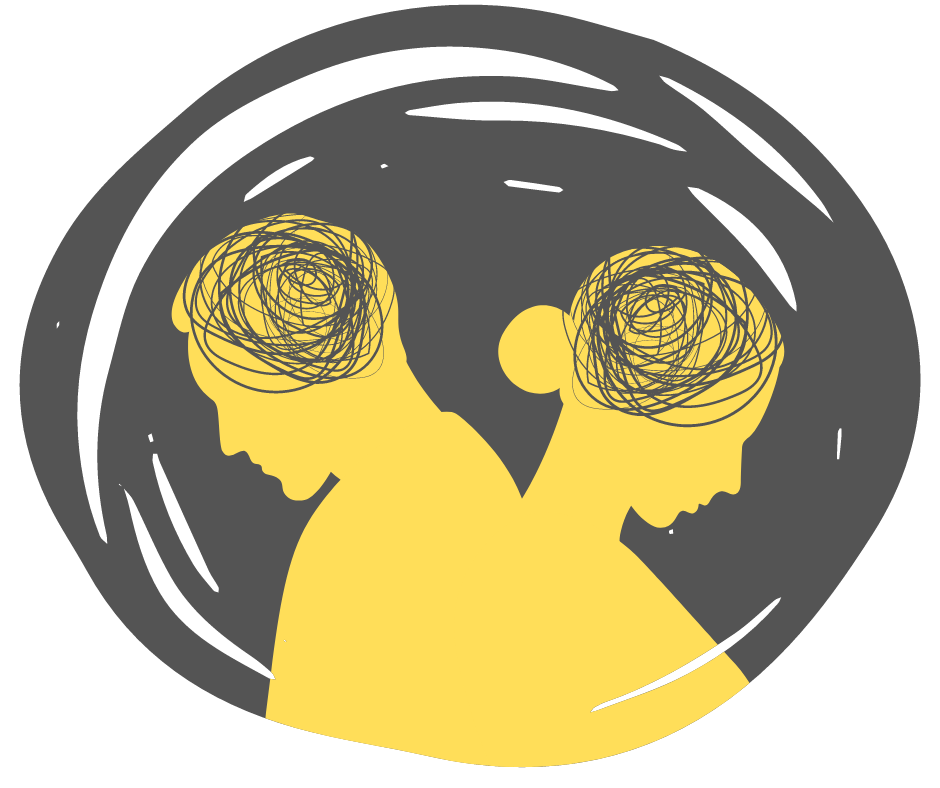
Rather than abruptly ending connections where you’ve grown apart, first reflect on whether changes are superficial or foundational.
If interests changed, but values still align, you may rediscover mutual interests or accept enjoying each other’s company without shared activities. Prioritizing your relationship can rekindle its significance despite other changes.
But if core values, communication styles, or needs for intimacy now differ, the relationship likely requires adjustment:
- Have an open, caring dialogue about how your relationship is evolving. Don’t frame changes as good/bad – just different.
- Discuss your changing needs non-judgmentally. Allow them to share how they experience these changes in you.
- If they’re open to evolution, too, brainstorm what adjustments might nourish your bond in this new phase. Is vulnerability possible?
- Establish healthy boundaries around behaviors or communication styles that no longer work for you. Kindly affirm your shifting needs.
- If substantial incompatibilities now exist, gracefully give space without judgment. Send occasional updates so they know you still care.
- Invest in relationships aligned with who you are now. Don’t cling to comfort zones that mute your growth.
- Appreciate outgrown friends for the vital role they played in your past without remaining tethered.
- Release guilt about evolving beyond connections that became limiting or stagnant. Flow with life’s changing seasons.
While letting go of outgrown relationships can be painful, avoid viewing it as a personal failure. Your growth path diverged, requiring each of you to find new matching pieces rather than resentfully trying to reassemble ill-fitting puzzles.
Trust you will forge increasingly meaningful relationships by aligning with those embracing parallel paths of adventure, wisdom, and self-discovery.
The Gifts of Outgrowing Limiting Relationships
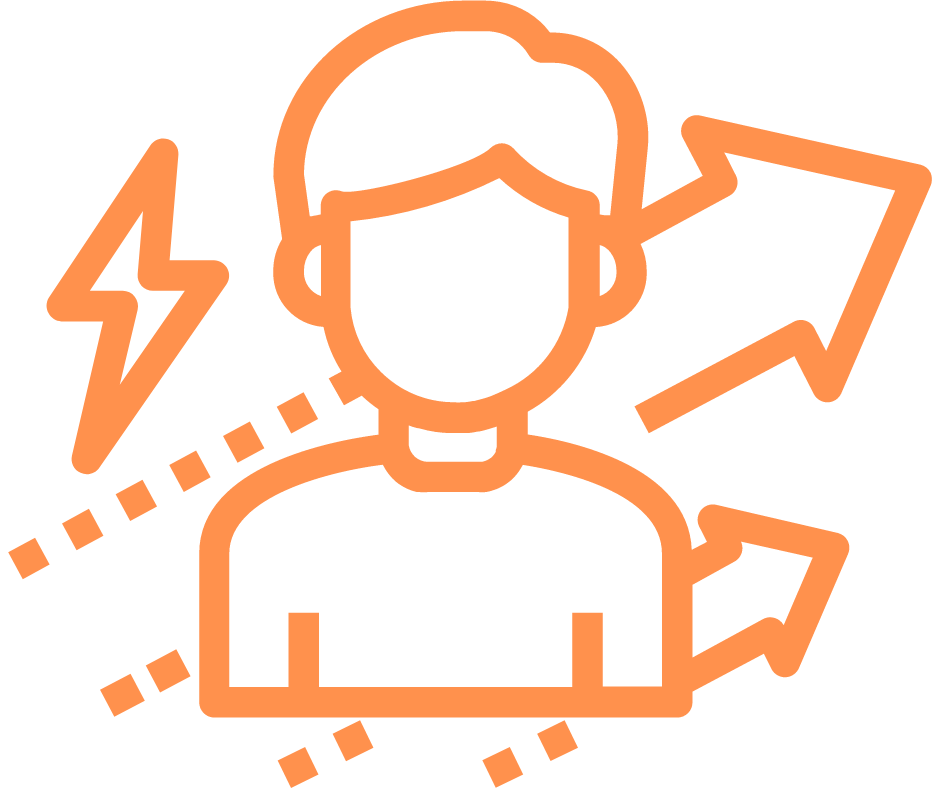
Outgrowing unsupportive people or energy-draining situations that you previously tolerated can be profoundly liberating:
- You reduce anxiety from constantly walking on eggshells and editing yourself. Your thoughts and feelings can flow freely.
- You open up space for new relationships that feel aligned, vulnerable, exciting, and mutually nourishing.
- You release stagnancy and embrace change and forward momentum, orienting your life around growth.
- You gain confidence establishing boundaries and standards instead of passive acceptance.
- You give your authentic self full permission to shine bright rather than minimizing your light.
- As you release past versions of yourself, your identity crystallizes, and self-acceptance grows.
- You position yourself to attract people who elevate you rather than bring you down.
Final Thoughts
Rather than clinging to comfort zones or feeling guilty for evolving, embrace the bittersweetness. Letting go with grace allows you to grow into your fullest potential unencumbered by limiting beliefs or draining relationships.
Outgrowing people provides the possibility for more compatibility, not less. Each relationship closing opens space for something new to flourish. Progress depends on said endings.
When viewed through a growth mindset lens, outgrowing certain people represents shedding old skin to make way for the new. It can feel uncomfortable but ultimately reveals a more vibrant version of yourself ready to boldly engage life’s next chapter.

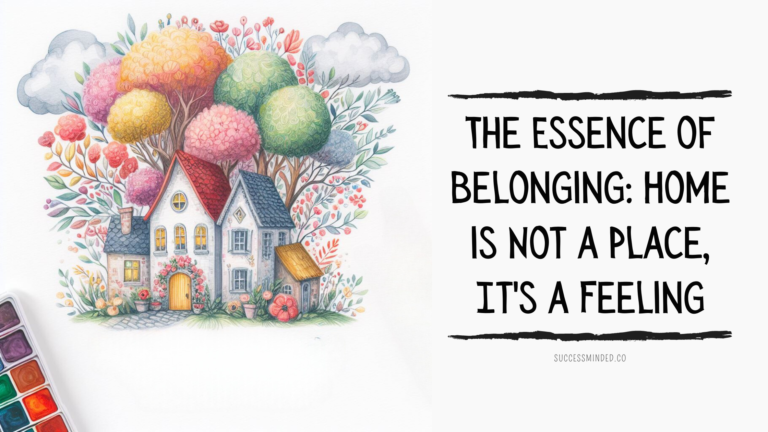

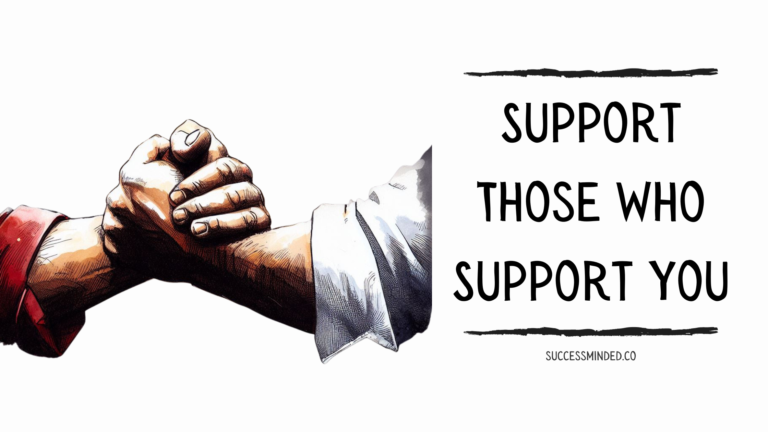
Pingback: Your Circle Should Want you to Win. (But How to Tell if they Don't) – Success Minded